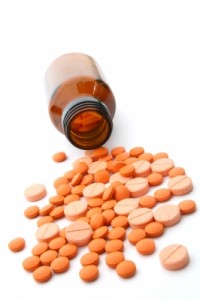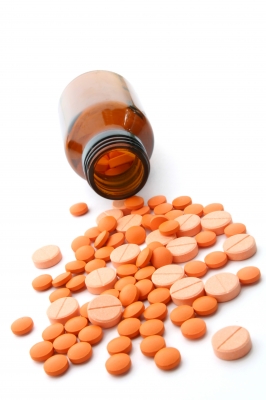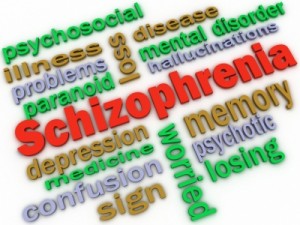
Image courtesy of Vichaya Kiatying-Angsulee at FreeDigitalPhotos.net
In a prior article called, Homeopathic Treatment of Schizophrenia, the symptoms of schizophrenia as well as the potential to treat it with homeopathy was discussed. When deciding which treatment method is best for you or a loved one, we felt it would be advantageous for you to understand the side effects of some of the more prevalently used prescription medications by conventional medicine.
According to a 2011 analysis of prescription drug data by a pharmacy benefits management company, one in five Americans takes some kind of psychiatric medication. The number of prescriptions for psychiatric and behavioral drugs rose 22% between 2001 and 2010. It was said that 26% of women and 15% of men take these drugs.
Medications Used to Treat Schizophrenia
There are at least a dozen prescription medications used to treat schizophrenia. The following are the four most common medications as well as their possible side effects:
Chlorpromazine (Thorazine)
Common side effects include dizziness, drowsiness, anxiety, sleep problems (insomnia), breast swelling or discharge, changes in menstrual periods, weight gain, swelling of hands or feet, dry mouth or stuffy nose, blurred vision, constipation, impotence, or trouble having an orgasm.
Haloperidol (Haldol)
Serious side effects include dizziness, fainting, fast or pounding heartbeat; restless muscle movements in your eyes, tongue, jaw, or neck; tremor (uncontrolled shaking); seizure (convulsions); pale skin; easy bruising or bleeding; flu-like symptoms; very stiff (rigid) muscles; high fever; sweating; confusion; fast or uneven heartbeats; tremors; feeling like you might pass out; stabbing chest pain; feeling short of breath; cough with yellow or green mucus; sudden mood changes, agitation, hallucinations, unusual thoughts or behavior; or jaundice (yellowing of your skin or eyes).
Less serious side effects may include headache, dizziness, spinning sensation, drowsiness, sleep problems (insomnia), feeling restless or anxious, mild skin rash or itching, breast enlargement, irregular menstrual periods, loss of interest in sex, dry mouth, blurred vision, or urinating less than usual.
Perphenazine
Serious side effects include twitching or uncontrollable movements of your eyes, lips, tongue, face, arms, or legs; tremor (uncontrolled shaking); drooling; trouble swallowing; problems with balance or walking; feeling restless, jittery, or agitated; confusion; unusual thoughts or behavior; feeling like you might pass out; seizure (convulsions); decreased night vision, tunnel vision, watery eyes, increased sensitivity to light; nausea and stomach pain; skin rash; jaundice (yellowing of the skin or eyes); high fever; stiff muscles; confusion; sweating;, fast or uneven heartbeats; rapid breathing; pale skin; easy bruising or bleeding; fever; sore throat; flu-like symptoms; urinating less than usual or not at all; joint pain or swelling with fever; swollen glands; muscle aches; chest pain; vomiting; unusual thoughts or behavior; patchy skin color; slow heart rate; weak pulse; fainting; slow breathing (breathing may stop).
Less serious side effects may include dizziness, drowsiness, anxiety, blurred vision, headache, sleep problems (insomnia), strange dreams, constipation, dry mouth or stuffy nose, breast swelling or discharge, changes in menstrual periods, weight gain, swelling of your hands or feet, impotence, trouble having an orgasm, mild itching, or skin rash.
Fluphenazine
Common side effects include drowsiness, lethargy, dizziness, nausea, loss of appetite, sweating, dry mouth, blurred vision, headache, or constipation.
Homeopathy vs. Traditional Treatment Methods
Now the question…which treatment method do you pursue? With conventional prescription medications there’s no way to tell which side effects, if any, you’ll experience. There’s also no way to guarantee the successful treatment of schizophrenia with prescription medications.
This is not the case with homeopathy, which uses a system of medicine based on the law of similars —“like cures like.” Your symptoms are matched to the symptoms a homeopathic medicine produces. When a match is made, the medicine stimulates the body’s own healing process in a gentle way. The results using Dr. Kaufmann’s homeopathic approach — with no harmful side effects — are successful.
Disclaimer: No statements on this website are intended to diagnose, prevent, treat or cure any condition or disease but rather are given for informational purposes only. Always seek the advice of a licensed, trained health care provider when using any dietary supplements, herbal, homeopathic, over-the-counter medicines, prescription drugs or making any dietary or lifestyle changes.





 Bipolar disease is no longer a condition that is unfamiliar to the most of us. Many people suffer from this sometimes disabling disorder both young and old. Although we all have our mental ups and downs, for the person with a bipolar condition these mood swings can range from totally normal to a manic attack on the other side.
Bipolar disease is no longer a condition that is unfamiliar to the most of us. Many people suffer from this sometimes disabling disorder both young and old. Although we all have our mental ups and downs, for the person with a bipolar condition these mood swings can range from totally normal to a manic attack on the other side.